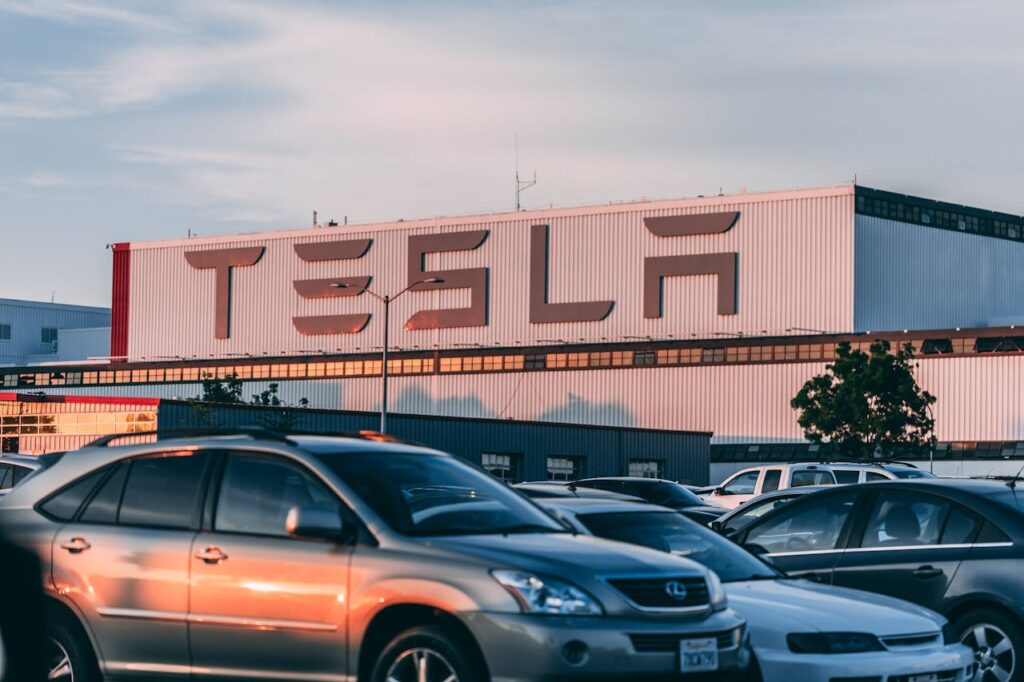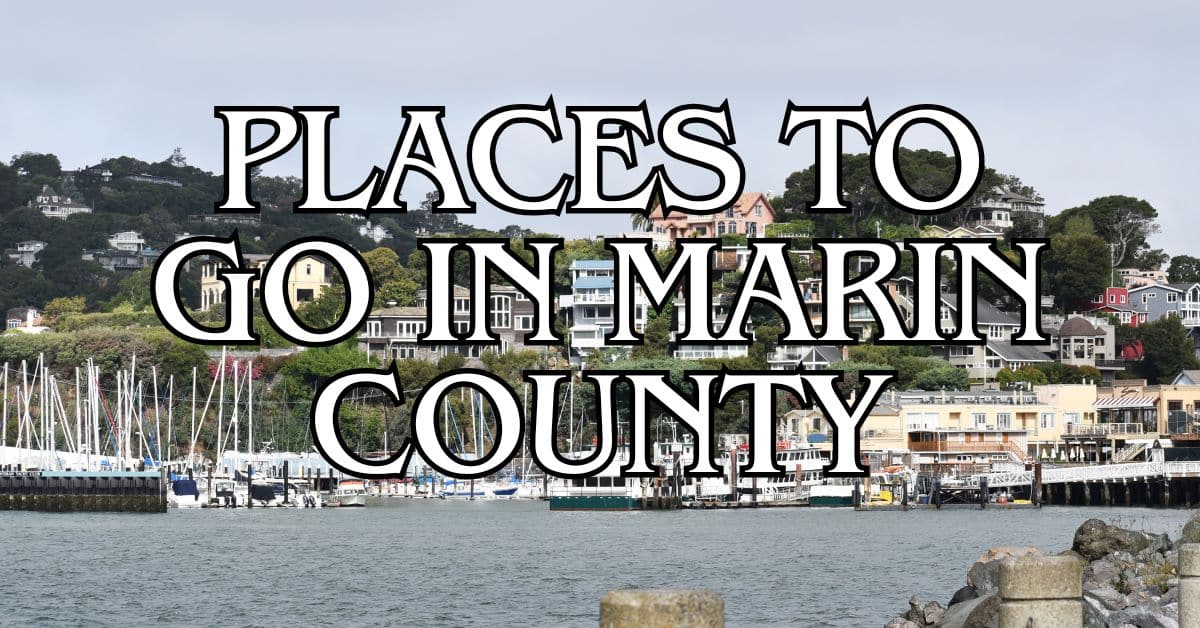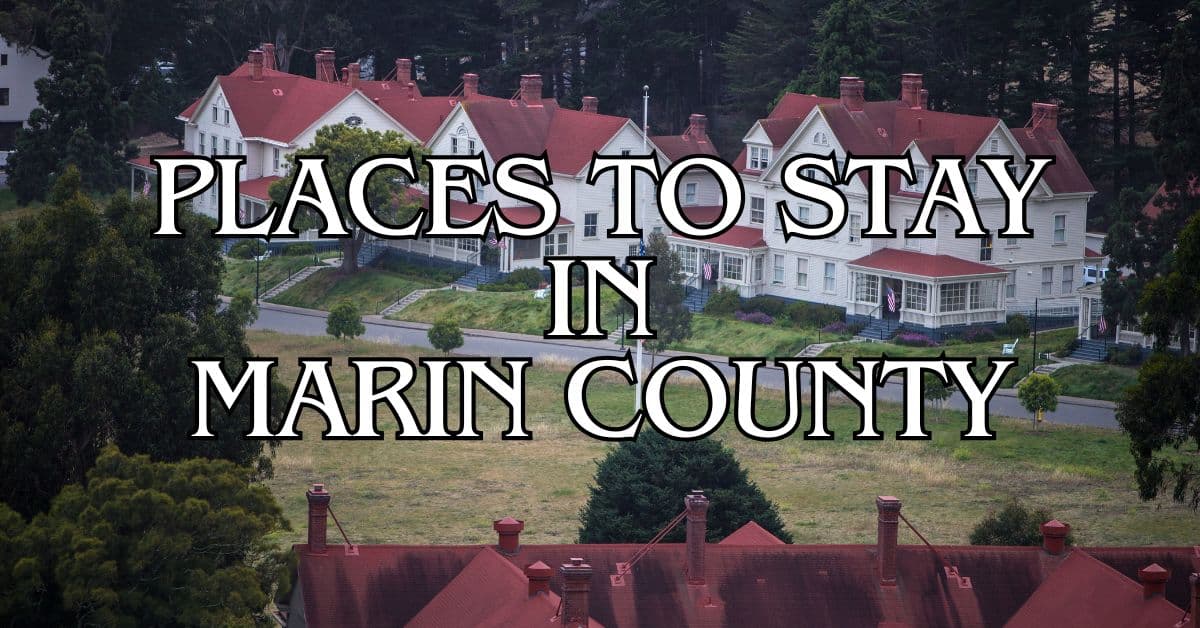The once-ubiquitous Tesla in Marin County driveways? Not so much these days. Plenty of locals are trading in their electric cars—sometimes losing money—because they’re fed up with Elon Musk’s politics. Bay Area Tesla owners are breaking up with Elon Musk by trading in their cars, showing how brand loyalty can erode when company leadership conflicts with local values.
Drive through Mill Valley or Greenbrae now and you’ll spot protests on freeway overpasses and outside the local Tesla dealership. The Greenbrae Tesla showroom has basically turned into a regular protest hub where folks like Susan DeVinny show up to make their voices heard. One resident said he gave up his Tesla about a year ago—the clash between the car’s green image and its owner’s politics finally became too much.
Discover hand-picked hotels and vacation homes tailored for every traveler. Skip booking fees and secure your dream stay today with real-time availability!
Browse Accommodations Now
Tesla Ownership Trends in Marin County
Teslas used to be everywhere in Marin’s upscale neighborhoods, but recent political developments have changed the scene. Now, more people are rethinking their vehicles because of who’s steering the company, not just how the cars drive.
Recent Shifts in Vehicle Preferences
Mill Valley, a pretty wealthy and liberal spot, has seen a real drop in Tesla ownership. What used to be the ultimate status symbol for eco-consciousness is now a bit of a political minefield. Check the local used car listings and you’ll find a flood of Teslas for sale in zip codes all over the county.
Plenty of homeowners are trading in their vehicles, even if it means taking a hit. According to a recent poll, 31% of Tesla drivers were thinking about selling or had already sold their cars, mostly because of disagreements with Musk’s statements and politics.
Other electric brands—Rivian, Lucid, and the big-name automakers’ EVs—are getting more attention as Marin folks look for something that fits their values better.
Profile of Marin County Residents
Who lives here? Well, Marin County’s got:
- Median household income: Over $115,000
- Political leaning: Mostly liberal
- Education level: 58% with college degrees
- Environmental concerns: High priority
Most people bought Teslas to cut their carbon footprint and enjoy some high-tech perks. Around here, your car says a lot about what you believe, not just how you get around.
The biggest drop-offs in Tesla ownership are happening in 94941 (Mill Valley) and 94925 (Corte Madera)—affluent, green-minded neighborhoods.
Impact on Local Transportation Networks
The Tesla exodus has left its mark on Marin’s roads. Supercharger stations aren’t as busy, but chargers for other EVs are seeing more action.
Dealerships have switched up their inventory, putting other electric cars front and center. The county’s transportation planners have noticed and are weighing these changes as they plan for new charging stations.
If you’re just passing through Marin, you’ll see fewer Model 3s and Model Ys than you would have a couple years ago. Around here, what you drive really does say something about your politics, not just your commute.
Elon Musk’s Politics and Public Perception
Elon Musk’s politics have changed a lot in the past few years. He’s gone from relatively neutral to pretty openly right-leaning, and that’s turned off a lot of Tesla owners—especially in liberal places like Marin County.
Notable Political Statements and Actions
People started noticing Musk’s political shift around 2022. He began endorsing Republican candidates and sharing conservative views on social media.
Lately, Musk has made some controversial comments about world events, including statements about Ukraine that some folks say line up with Putin’s perspective. His support for certain politicians has definitely worried a lot of liberal Tesla owners.
He’s also changed where he puts his money. While he used to give to both sides, now most of his donations go to conservative politicians and causes.
Musk has invited controversial figures onto his platforms and even met with them in person, cementing his new political identity for everyone to see.
Reactions Among Bay Area Communities
Marin County’s response? Pretty fierce. People protest regularly on freeway overpasses between Mill Valley and other towns, making it clear they don’t like Musk’s political stances.
Some long-time Tesla owners now feel uncomfortable in their own cars. One former owner put it bluntly: “I don’t want my car to be a political statement I disagree with.”
Local Tesla clubs have lost members, with some shutting down entirely. Online forums are full of heated debates about whether to keep or ditch the cars.
Take a look around Bay Area parking lots and you’ll spot fewer Teslas. Sales have dropped, with some markets seeing nearly 60% fewer sales than before.
Influence of Social Media and News Coverage
Social media has only cranked up the volume on all this. Musk’s posts on Twitter (now X) reach millions in seconds, and backlash from liberal users is often instant and loud.
News outlets keep pointing out the clash between Tesla’s green image and Musk’s support for politicians who aren’t exactly climate champions. For eco-minded owners, that’s a tough pill to swallow.
Progressives are increasingly getting rid of their Teslas, not wanting to be associated with Musk’s politics. These days, driving a Tesla means people might assume you share Musk’s views—fair or not.
The FBI has even warned about incidents targeting Tesla vehicles and charging stations across the country, showing just how much the brand has become a political flashpoint.
Reasons Marin County Residents Are Ditching Their Teslas
More and more Marin Tesla owners are trading in their EVs. It’s not just about politics—privacy worries and money play a big role too.
Dissatisfaction With Brand Image
Plenty of Marin residents are selling their Teslas because the brand doesn’t fit their values anymore. Musk’s political posts and online antics have clashed with Marin’s progressive vibe.
“I couldn’t keep driving something that felt like a rolling billboard for views I disagree with,” says Lisa Chen, a Mill Valley local who swapped her Model Y for another EV last month.
The disconnect goes deeper than casual disagreement. Drive through Tiburon or Sausalito and you’ll spot fewer Teslas than just a couple years ago. Charging stations that used to be packed with Teslas now show a lot more variety.
Some owners feel let down by where the company’s headed. “I bought into a vision of sustainable transportation, not political controversy,” says Michael Branson, a San Rafael homeowner who sold his Tesla at a loss.
Concerns Over Consent and Personal Data
Privacy is a big sticking point for many. Teslas collect a lot of data—from driving habits to locations, even in-car conversations. That makes some folks uneasy, especially since the consent process isn’t exactly crystal clear.
“You’re basically driving a computer that watches everything,” says Emma Lawson, a privacy attorney in Corte Madera who recently made the switch to another EV. “The terms of service are vague about what happens with your personal data.”
Since Tesla can push over-the-air updates, features sometimes change without direct owner approval. That’s left some security-conscious residents wondering if they really control their own cars.
Desire for Lower Cost Alternatives
Money matters, too. As more EVs hit the market, cheaper options with similar features have popped up.
New EVs from the big names often offer:
- Lower starting prices
- Comparable range
- Tax incentives
- Similar performance
The cost savings can be pretty dramatic. Stack a Tesla Model 3 against a similarly equipped competitor and you might see a price gap of over $10,000.
“I got more features for less money,” says Jason Torres of Novato, who traded his Tesla for a Hyundai Ioniq 5. “Plus, the dealer service is way more personal and convenient than Tesla’s style.”
Lots of former Tesla owners mention maintenance headaches, too. As their cars got older, repairs got pricier and service wait times stretched out, making other brands’ dealer networks look a lot more appealing.
Consequences for the Local Automotive Market
The Tesla exodus in Marin County has shaken up the local car scene, changing what people buy and how they get around.
Rise of Competitors Such as Jaguar
Luxury electric competitors wasted no time moving in. Jaguar I-PACE models are popping up everywhere in Mill Valley and Sausalito.
Dealerships say electric vehicle inquiries from former Tesla owners are up 37%. A lot of buyers specifically ask for “premium EVs without the political baggage.”
The shift’s helping other brands, too:
- Rivian showrooms are packed on weekends
- Polestar just opened a new spot in Corte Madera
- Ford and GM’s electric models keep gaining ground
These competitors are leaning hard into their environmental messaging and steering clear of politics in their ads—a pretty smart move, honestly, given what’s been driving people away from Tesla.
Impact on Used Car Values
The rush of used Teslas on the market has shaken up local resale prices. Dealers even have a nickname for it—the “Musk discount.” Right now, used Teslas are selling for 15-22% less than other electric vehicles in the same class.
For buyers, that drop means a chance to snag an EV at a lower price. Sellers, though, are stuck with tough choices. Plenty of Tesla owners feel conflicted these days, especially when facing steep losses at trade-in time.
Average Price Drops for Used Teslas in Marin County:
| Model | 2024 Value | 2025 Value | Percent Change |
|---|---|---|---|
| Model 3 | $31,400 | $24,700 | -21.3% |
| Model Y | $42,300 | $34,800 | -17.7% |
| Model S | $55,600 | $47,100 | -15.3% |
If you’re not hung up on the politics, these prices open the door—especially for younger drivers ready for their first EV. It’s a weird silver lining, honestly.
Shifts in Transportation and Transit Usage
People in Marin are rethinking how they get around, and it’s not just about ditching Teslas for another car. Public transit is getting a little boost—ridership’s up about 8% as some ex-Tesla folks try going car-free, at least for now.
Golden Gate Transit buses and ferries feel more crowded during rush hour. The Tesla Takedown movement has sparked all sorts of talk about other ways to get around.
Some rideshare companies now market “Tesla-free fleets” to attract eco-minded riders who want to avoid the brand. A few neighborhoods even started sharing their own electric vehicles, sort of like a community car co-op.
Honestly, one of the most obvious changes? The Tesla superchargers. Those used to be packed—now, not so much. It’s wild how something as simple as your car choice can become this loaded, personal thing in Marin.
Societal and Economic Impact
Owning a Tesla in Marin County has flipped from status symbol to political statement. People are feeling pressure—from all sides—to trade in their cars or stick it out.
Mortgage Payments and Economic Pressure
Homeowners here are making tough calls: keep the Tesla or keep up with the mortgage? With home prices hovering near $1.5 million, monthly bills get hefty fast.
“I couldn’t justify the $900 car payment alongside my $5,200 mortgage,” admits Mill Valley local Janet Chen, who traded in her Model Y even though she lost $12,000 on the deal.
The shift doesn’t just hit individuals. Local Tesla dealers have watched sales drop 30% since 2023. Used car lots are flooded with Teslas. If you’re not bothered by the politics, it’s a buyer’s market out there.
Changing Attitudes of Families and Friends
Family and friends can be surprisingly persuasive when it comes to car choices in Marin. Regular protests on the Mill Valley freeway overpass have made some Tesla drivers downright uneasy.
“My daughter refused to be seen in our Model 3 after her friends started calling it the ‘Trump-mobile,'” says Sausalito resident Michael Torres.
Neighborhood vibes have shifted, too. Those big Tesla owner meetups in Tiburon and Corte Madera? Used to draw 40 or more, now it’s barely 10. Online forums have gotten heated. Who thought picking a car would get this dramatic?
Links to Unemployment and Serious Illness
The Tesla backlash ties into bigger worries—unemployment, illness, and just general stress. Tesla’s smaller Bay Area footprint has meant some local job losses, and a few folks say they left because of moral disagreements.
Doctors are noticing, too. Some patients blame workplace drama over their cars for new anxiety. Dr. Elaine Morrow at MarinHealth says, “I’ve seen patients develop anxiety disorders stemming from workplace tensions about their vehicles.”
For families already coping with serious illness, the social baggage of Tesla ownership can be the last straw. The Marin Cancer Support Network says some members have sold their Teslas to avoid extra stress during treatment.
Now, financial advisors actually bring up car brands when talking about financial wellbeing. That just wasn’t a thing before 2023.
Broader Cultural and Political Influences
The Tesla situation in Marin County is really just a piece of a bigger national puzzle. These days, what you drive can say as much about your politics as your bumper stickers do.
Prominent National and Global Events
Recent political shifts have only widened the Tesla divide. The 2024 election put Elon Musk in the spotlight, and his political moves drew some hard lines around Tesla ownership.
Climate policies have added fuel to the fire. The Biden administration pushed for more EVs, while Musk criticized some environmental rules. That left plenty of eco-conscious buyers feeling torn.
The coming 2028 Olympics in LA have put a spotlight on sustainable transportation, but Tesla’s nowhere to be seen in official partnerships—even in California, the heart of EV country.
French President Macron’s recent California trip skipped Tesla facilities, which says a lot about the global dimension of all this.
Role of Sports and Entertainment Figures
Sports and entertainment stars have jumped into the Tesla debate. Several NBA players—especially on the Warriors—have ditched their Teslas for other EVs and aren’t shy about it.
NFL players are split, too. One 49ers quarterback covered his Tesla logo, telling reporters: “I love the car but hate what it now represents.” That went viral fast.
Local entertainers have even organized protests on freeway overpasses where Teslas roll by. Some of the signs are pretty harsh—one even called them “swasticars,” according to local news.
In places like Marin, where image matters, these big names really do shape what people think.
Public Trust and Regulatory Oversight
Regulators are eyeing Tesla more closely than ever. The FDA called out Tesla’s air filtration claims, which hasn’t helped consumer trust.
California transit officials are rethinking Tesla’s perks in HOV lanes and at charging stations. It’s part of a bigger question: does Tesla still fit with California’s environmental priorities?
Safety worries keep coming up, too. When progressive owners sell their Teslas, they often mention not just politics but doubts about the cars’ self-driving tech and Tesla’s customer service.
It shows. Superchargers in Marin used to have lines out the lot—now, they’re often half-empty on weekends.
Potential Future Developments in Marin County
Things are changing fast between Marin and Tesla. Residents are making new choices, and local officials are weighing policies that could totally reshape the EV scene.
Anticipated Policy Changes
Marin officials are working on new EV incentives that won’t give Tesla special treatment. The County Board of Supervisors is expected to vote soon on a proposal offering rebates for any EV, not just Tesla.
The idea is to keep pushing for greener cars while also respecting the community’s political concerns. The Marin Tesla dealership has become a regular protest hub, which has definitely put pressure on officials to consider more options.
They’re also looking at rules that would require more charging stations for all EV brands, not just Tesla. That’d help people switch while sticking with electric.
California’s still all-in on zero-emission vehicles, no matter which brand is in the hot seat.
Evolving Consumer Attitudes
People in Marin are starting to separate their environmental values from their loyalty to any single brand. They’re checking out Rivian, Lucid, and even EVs from traditional automakers.
Used Teslas have gotten a lot cheaper—some now go for under $35,000 in Marin. That price drop is pushing more folks to rethink what they want in their next car.
Community car-sharing groups featuring non-Tesla EVs are catching on. They give people a chance to try something new before they commit.
You’ll probably spot more charging stations at shopping centers and public buildings these days. That helps with “range anxiety,” especially for non-Tesla drivers who used to feel boxed in by limited options.
There are even Facebook groups now just for “Tesla Exiters”—people swapping stories and tips about making the switch. It’s a whole scene.
Long-Term Implications for State and Country
California’s push for more EVs is hitting a snag as the Tesla situation gets messy. The state’s got to juggle its green ambitions with what people actually want—especially when it comes to big business and politics mixing.
All eyes are on Marin’s “internal war” over Tesla ownership, and honestly, it’s not just local drama. This kind of tension—environmental ideals clashing with political stances—could easily pop up in other progressive spots across the country.
Auto companies are watching Marin County like hawks. It’s basically a test market for wealthy, eco-minded buyers. Ford and Volkswagen, for example, have already started ramping up their ads here.
Expect electric vehicle competition to get a lot fiercer—everywhere, not just in California. The drama around Tesla is giving other brands a real shot, especially if they can steer clear of political baggage.
Now, interest rates for EV loans are suddenly a hot topic. Some local credit unions are even rolling out special deals for folks trading in their Teslas for a different electric ride. Makes you wonder if this is just the beginning of a bigger shift.
Find available hotels and vacation homes instantly. No fees, best rates guaranteed!
Check Availability Now






